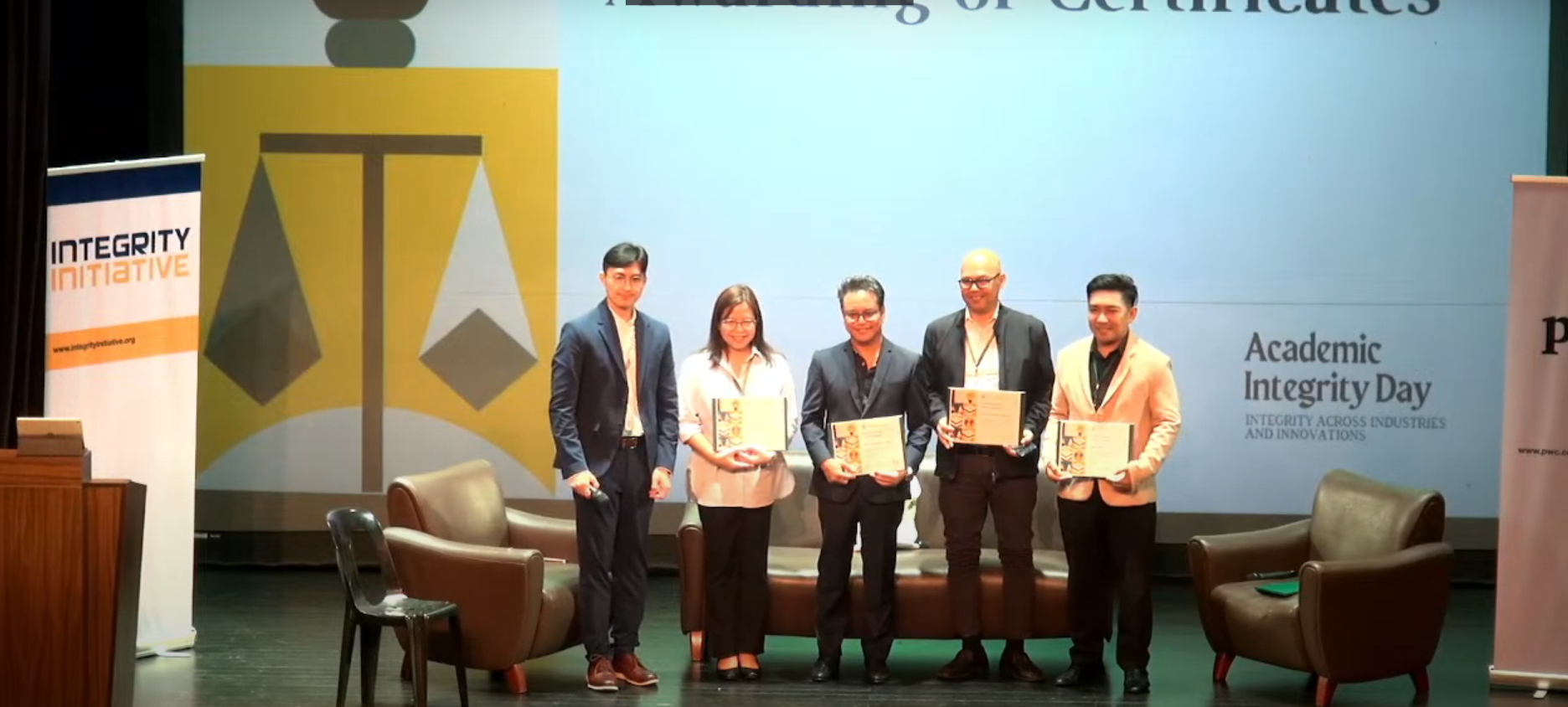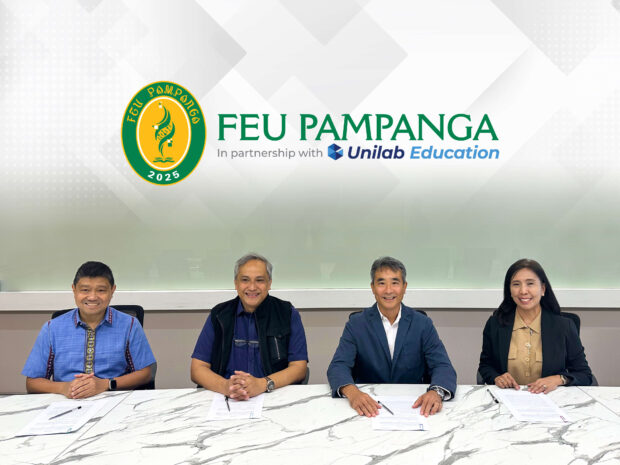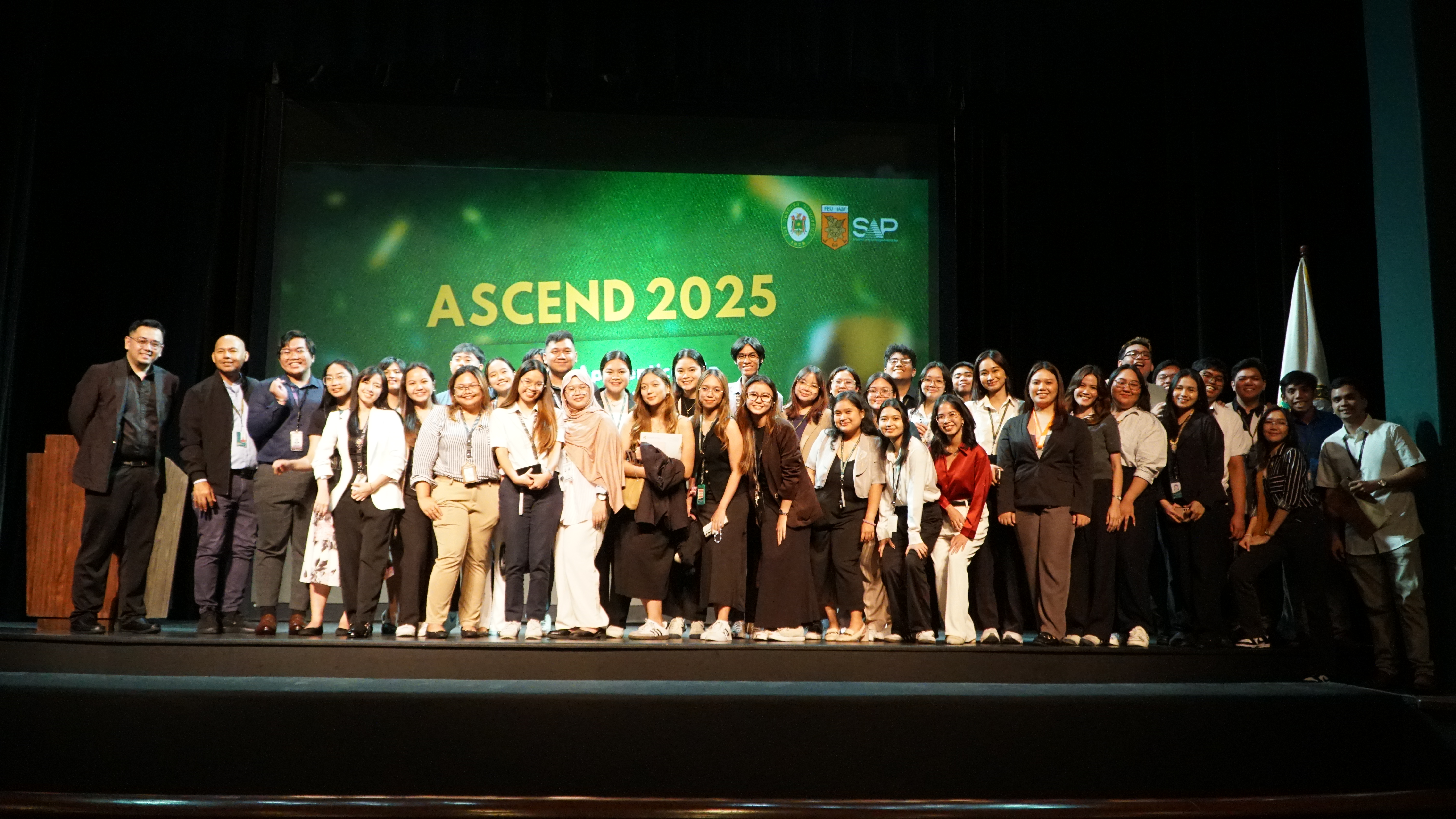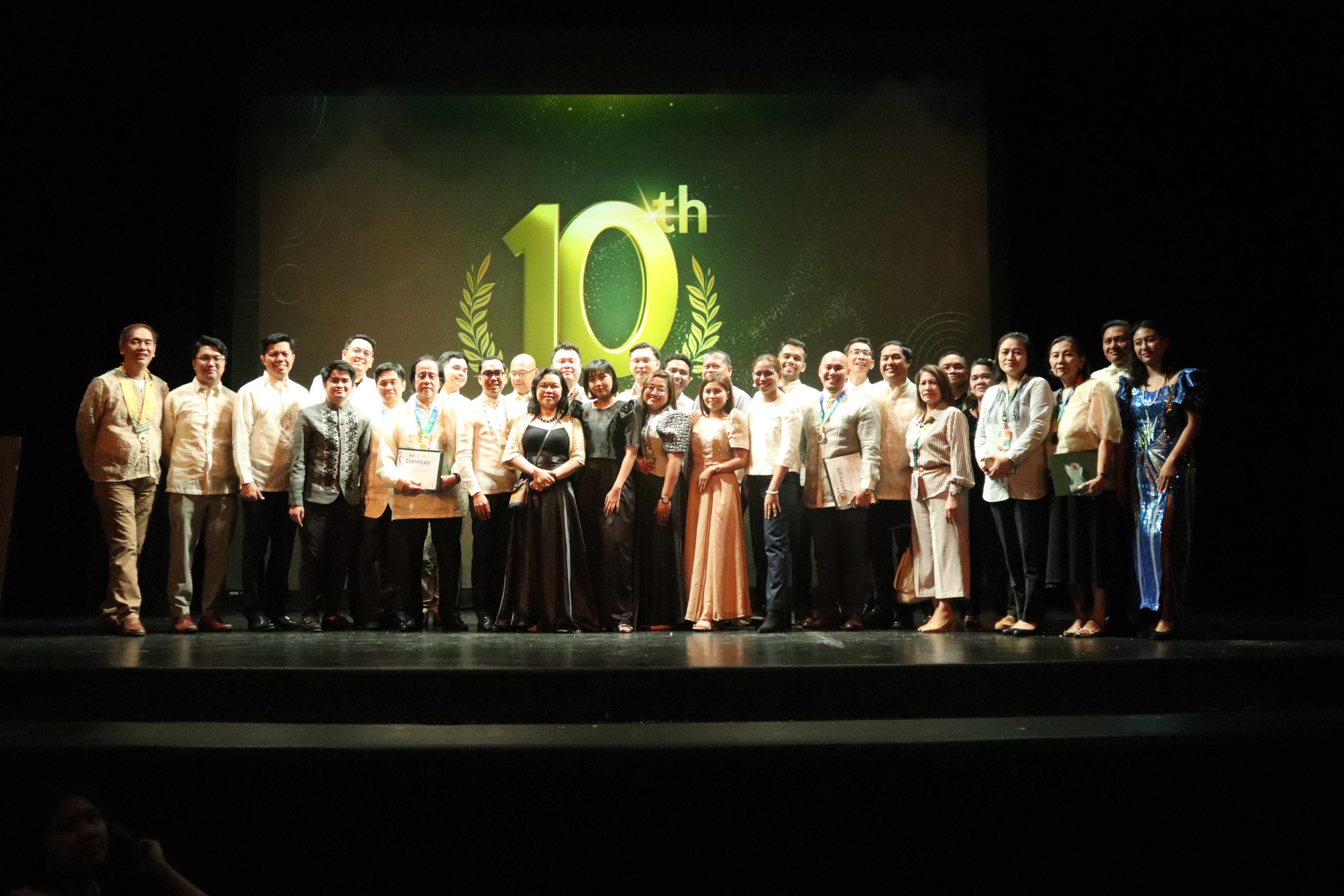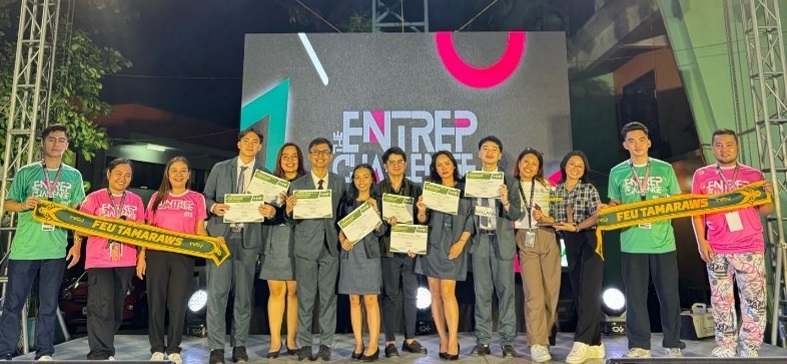Far Eastern University (FEU) recently celebrated its annual Academic Integrity Day (AID), reaffirming its commitment to fostering trust, fairness, and responsibility within the Tamaraw community. The event gathered faculty and students together for discussions on the importance of academic integrity in shaping the future of education.
Atty. Alex Cabrera, representing Integrity Initiatives Inc., took the stage as the keynote speaker, expounding on the role integrity plays in the academe. He underscored the significance of honesty in fulfilling academic obligations, setting the tone for a day dedicated to fortifying the foundations of education. He also highlighted the indispensable nature of integrity in students’ lives, especially amidst subtle moral quandaries, advocating for forgiveness as a catalyst for growth and progress.
Cabrera was joined by other speakers, such as Student Development director Rondell Gascon, Institute of Accounts, Business, and Finance dean Earl Joseph Borgonia, and Prof. Joycelyn Filoteo, who delved into contemporary issues and shared experiences, fostering a deeper understanding of academic integrity.
Alongside the plenary talk, parallel sessions were also held in other venues. These sessions gave students from different institutes a chance to listen and discuss with their facilitators and academic managers the principles and best practices of Academic Integrity.
Angela Busayong, one of the facilitators, emphasized the need for events like AID saying it bridges the gap between awareness and action.
“It’s not enough to acknowledge the importance of academic integrity,” she said. “We must actively cultivate a culture that upholds it.”
For his part, AID facilitator Patrick Mendones echoed this sentiment, affirming academic integrity as the cornerstone of success and excellence. He urged all members of the Tamaraw community to strive for integrity.
The event, said Marko Antonio Da Silva, director of the Center for Learning Enrichment and Research for Students, served as a rallying cry for integrity and honesty in education.
“Students must understand the essence of integrity,” said Da Silva, “for it is the cornerstone upon which their academic journey stands.”
What Students Say
One student claimed that he practices academic integrity by using his own knowledge and skills when it comes to his academics. Reading is a must, a second one said, because this is from where people can input what they have understood. Meanwhile a third student said she submits her own work, attributes the contributions of others, and conforms to institutional standards and policies.
“Academic integrity is necessary in education institutions because it is a way to ensure that their education is of upmost quality,” said the first student. “Students are enabled to think critically, dig deeper, and utilize their creative minds. Academic integrity could lead the students to a better career path since they trust themselves to produce their own work,” said the second student. “Academic integrity must be maintained in education in order to ensure the accuracy of academic qualifications and to cultivate an environment that upholds ethical standards,” said the third student.
Talking about the university’s core values of fortitude, excellence, uprightness, the first student said: “fortitude can be related to students who stand against the unethical use of artificial intelligence (AI) especially with its booming increase of usage; excellence can be related to the feeling of success and satisfaction of students when their own original work is praised and graded fairly; uprightness means being honest and truthful—the main core of academic integrity.”
The second one said: “Having academic integrity could take a lot of courage for someone. Being able to practice academic integrity is a great starting point because an individual is brave enough to avoid the temptation of doing wrong. An individual who practices academic integrity is willing to excel in different aspects of his or her life. Academic integrity shows uprightness because a person chooses to do the right thing even though no one is looking.”
“All of these concepts [fortitude, excellence, uprightness], when taken together, contribute to the development of a strong educational environment in which academic honesty is an important aspect,” said the third student.
When it comes to AI, there are some things the students said they could not avoid in the applications that they use. Even document-making applications like Google Docs and Microsoft Word have built-in AI that cannot be avoided, they said. But they should not abuse AI, they agreed. Maybe grammar checks are acceptable, but to have AI do the work for them hinders growth and development academically, said one student.
“While AI is a big help to everyone, the said tools are used too much that limits people’s ability to think critically and creatively. This can still be used as a guide or an idea-giver and not be the sole medium in creating all the given work,” said the second student.
“Students have the capacity to make responsible use of these resources and maintain the dependability of their academic endeavors if they employ a strategy that is both analytical and critical when it comes to the utilization of technology,” said the third student.
What About Teachers?
Faculty members like Michael Aquino and Faith Jovellanos lent their perspectives, highlighting how academic integrity fosters a fertile ground for learning and innovation. Jovellanos, in particular, underscored her commitment to using credible sources in teaching, emphasizing the duty that educators hold in facilitating learning.
“Academic integrity means honesty, fairness, and truthfulness within academic pursuits,” said one teacher. “Academic integrity is a necessary component of every faculty’s life in the pursuit of truth. While one believes that truth and researching for it is a different domain of its own according to its purpose, academic integrity highlights the values that a person has in the process of pursuing truth,” said her colleague.
The two elaborated on Aquino’s and Jovellanos’s statements, saying academic integrity can also be maintained in the use of AI and other sources by making clarifications or scenarios.
“In the advent of AI, all the more that academic integrity should be upheld. Despite its developing phase, one should eventually recognize that AI has its limitations, and should also explore how these limitations are crucial to uphold academic integrity. AI may help us form our opinions, organize our ideas in structured forms, but to solely rely on AI as if it is the one true source of all knowledge, and to submit an output that is generated by such is problematic,” they said.
The colleagues added that once everyone understands academic integrity as a vital component to an academician’s life, a student should recognize the value of grit and rigor in scholarship.
“There is always something exciting about human interactions whenever a student seeks the opinion of another and engages in a discourse to further elaborate their understanding on the subject matter. To engage in such discourse is not only an intellectual gesture, but it is an ethical one as well,” they said. “It is in such intellectual exercise that students humble themselves toward the opinions of others and express their ideas [albeit in disagreement] with the tone of respect. This is an experience that AI cannot replicate.”
